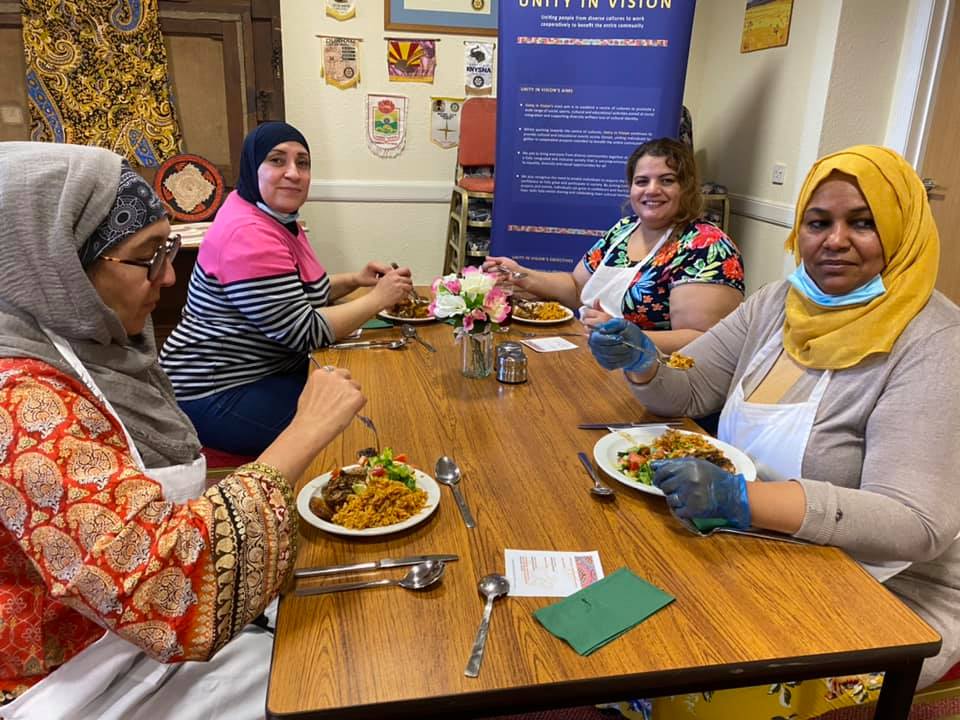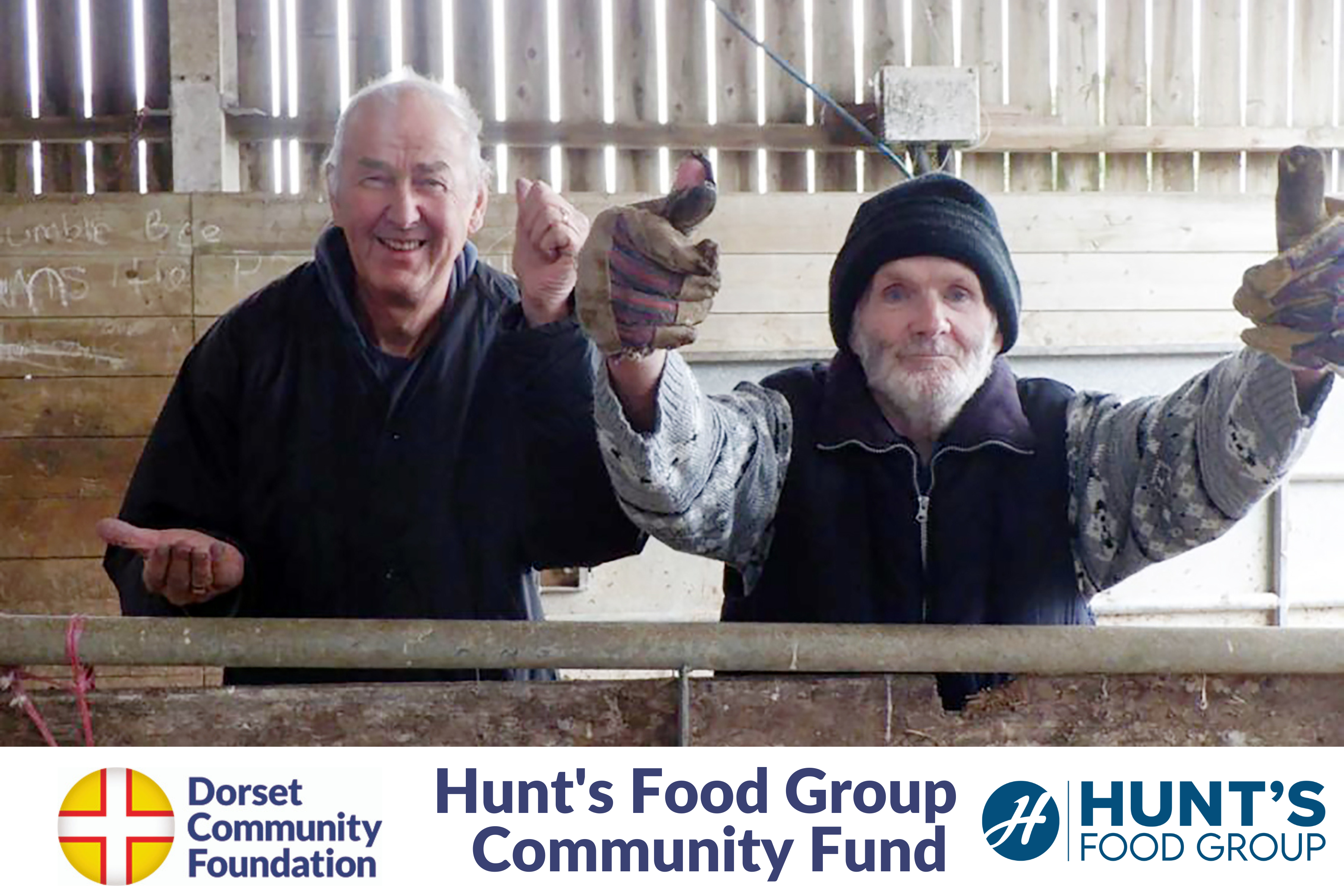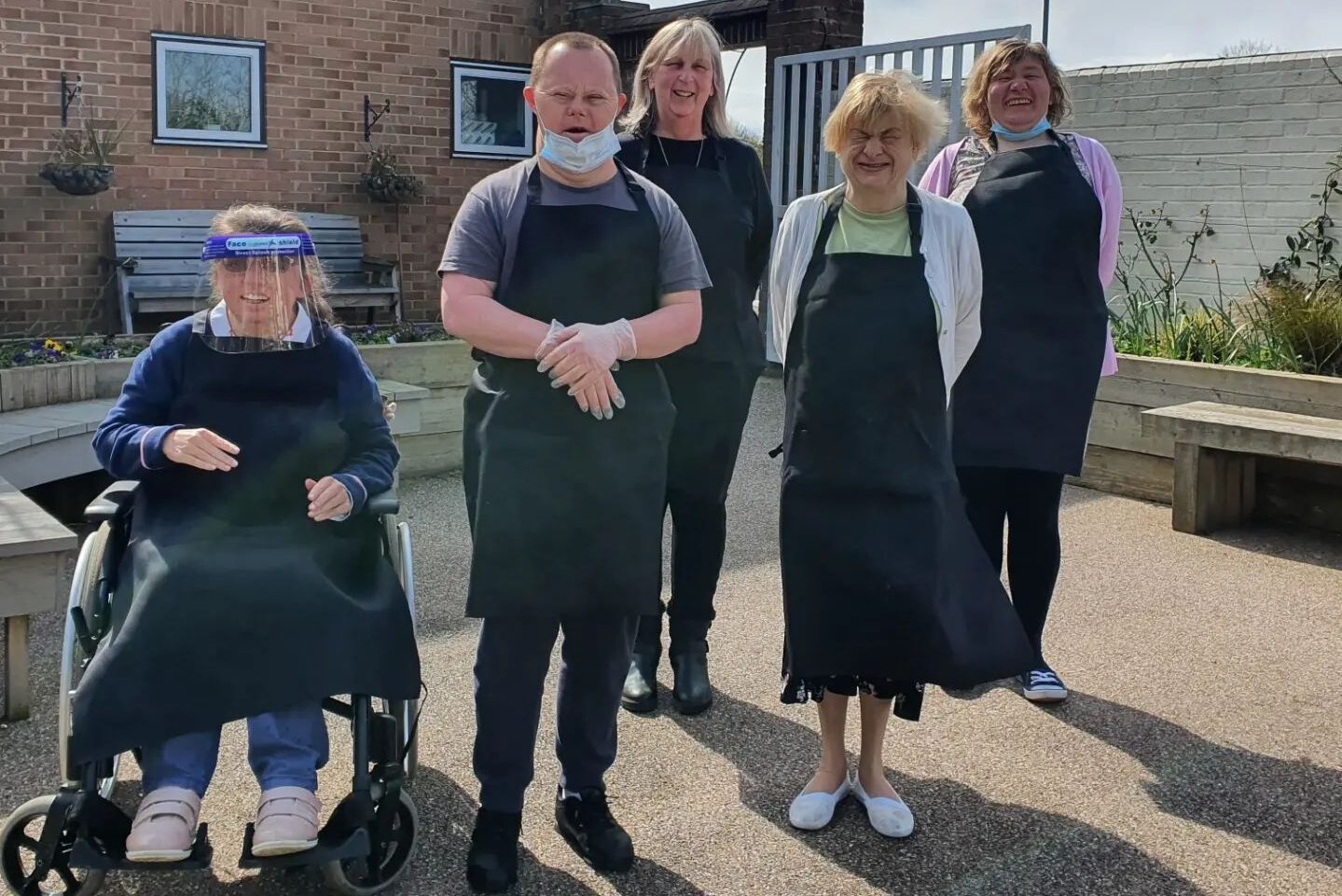THE FINAL ROUND OF THIS FUNDING PROGRAMMES CLOSED AT MIDDAY ON 2ND AUGUST 2024
This funding programme is for activities and services for adults only (age 18+) across the county of Dorset (including Bournemouth, Christchurch and Poole).
The following grants are available:
- Grants of up to £10,000 for a 6 to 12 month grant period (requests for smaller amounts are welcome)
Background
The Access Wellbeing programme, through a co-produced process, have designed a new way of delivering Mental Health and Wellbeing services in Dorset. This will be achieved by the NHS, local authorities and the voluntary and community sector working together. There is a focus on early intervention and preventative support where a person is empowered to identify and work towards their own life goals. These plans compliment NHS England » The community mental health framework for adults and older adults, which advocate the strengthening of relationships with local community groups, and the value of social prescribing.
NHS Dorset are working together with NHS Dorset HealthCare, Community Action Network (CAN) and partners across the system to develop a universal community wellbeing offer across Dorset, including wellbeing hub development. This funding programme aims to compliment these plans, by supporting activities delivered by the local voluntary sector that provide other community-based wellbeing services with an early intervention approach.
Organisations eligible to apply:
- Registered charities
- Constituted community and voluntary organisations
- Community Interest Companies limited by guarantee
- Companies limited by guarantee that have a clear not-for-profit clause in their governing document and clear charitable or social objectives
We do not fund national charities but can fund local branches if they have independent governance and are financially independent.
Groups who were unsuccessful in the previous round, may apply again in this round.
To be eligible the organisation must have:
- At least three unrelated people responsible for running the organisation (for registered charities these are your trustees, for CICs/Social Enterprises these are your directors)
- A written constitution or set of rules that sets out the purpose and management of the organisation
- A bank account in the name of the organisation with at least two unrelated signatories required for payments
- An appropriate Safeguarding Policy and EDI policy
Exclusions:
- Schools are not eligible but we can fund PTA groups if they meet our eligibility guidelines
- We cannot fund the promotion of religious or political causes – faith based organisations should advise whether funded activities are designed to, or include elements that are designed to influence people’s religious choices
- We cannot fund public bodies to carry out their statutory obligations
- We cannot fund animal welfare organisations
- We cannot offer retrospective funding for items already purchased or work completed
- Organisations with more than 12 months’ unrestricted reserves are usually not funded
Fund Priorities
This funding programme will support community based *non-clinical services and activities to adults age 18+ focusing on wellbeing and mental health. Grants will be awarded to support:
- Early intervention services and activities that support people in community based settings to improve their wellbeing and mental health, helping people live well for longer and thereby reducing the need for NHS appointments and clinical intervention.
- Services and activities that empower people to build their resilience and ability to find their own solutions and support strategies, enabling them to lead independent and happy lives. This might include contributing to the communities that support them, taking an active role in supporting others where appropriate, building social networks.
- Services and activities that enable people living with mental health conditions to participate in activities that support their recovery and wellbeing, help them to manage their condition, live well in their community, maintain appropriate self-care, and thereby reduce reliance on NHS services.
*Non-clinical activities are those which do not provide any type of medical diagnoses, testing or treatment such as those provide by NHS services, including psychiatry, prescribing medication, professional counselling/therapy. This fund is not designed to support clinical interventions for those with severe mental illness.
Priority will be given to services and activities that support communities experiencing health inequalities, including people living in areas of high deprivation and those from inclusion health groups. Inclusion health groups are people who are socially excluded and experience multiple risk factors for poor health. You can read more about health inequalities and inclusion health groups here: NHS England » What are healthcare inequalities?
Examples of activities include but are not restricted to: social/support groups for people experiencing isolation & loneliness, facilitated support groups for people with shared experiences that impact wellbeing, green social prescribing activities, dementia friendly activities, support groups for carers, supported music, crafting or sports activities focussing on wellbeing outcomes, support groups or services for parents experiencing challenging circumstances.
We welcome applications from groups that provide complimentary practical assistance for social issues that contribute to the wider determinants of health such as advice & support with benefits and debt issues, education/employment support, housing support, food or fuel poverty (not an exhaustive list). Or groups that work in partnership with others to provide this additional assistance. Please note: funded services should primarily be targeted at supporting people’s wellbeing and mental health support.
What can I apply for?
Grants of up to £10,000 are available for a 6 to 12 month grant period.
Funded activities must start within two months of the award and groups have from six months to one year to spend the grant.
Applications do not need to be for new services. We can fund the continuation of existing services that are delivering evidenced outcomes. We can fund the expansion or adaption of these services in line with local needs or increased demand, piloting new ways of working or launch of new services.
We can support any costs that are directly needed for the delivery of funded activities including; perishable and non-perishable goods, capital costs and equipment, staff/volunteer costs including training & support, transport and venue hire, administrative costs, reasonable contribution to organisation overheads/core costs.
What I need to consider when applying?
- You need to tell us who your service/activity will support, what you will deliver, approximate beneficiary numbers and how you will reach out and identify those in most need of support (referral routes)
- You need to tell us how the service/activity supports prevention and helps to relieve pressure or need for NHS interventions
- You need to evidence that there is an appropriate level of expertise to deliver the described activities, depending on who they are aiming to support and what they are providing (this may be lived experience facilitators or professionally qualified practitioners as appropriate)
- You need to tell us which positive wellbeing and mental health outcomes you are aiming to achieve (a list of suggestions will be provided) and describe how you will monitor these outcomes
Monitoring and reporting
Completion of an online End of Grant report is a requirement of funding for all grant recipients. The report will ask for details on how funds were spent, the activities delivered, the number of participants and volunteers, the outcomes achieved (the difference made to the lives of participants, their communities, and volunteers) and individual case studies. We are also interested in any challenges or learning during the grant period and its impact on your organisation, and your plans for the continuation of activities.
You should have tools in place to measure and record the intended outcomes of the grant – the difference the activities have made to the lives of participants and volunteers. Methods for measuring outcomes should be appropriate for the size grant received and the activities you are undertaking, and do not need to be complex. Examples may include feedback forms/questionnaires, interviews or discussion groups, recording observations etc.
Pre-application support and support for successful groups
Pre-application support for this programme is being delivered by Community Action Network (CAN), who are available for one to one support and guidance to groups at any stage of the application process. We highly recommend you take up this offer, in order to check you are funding ready and to receive advice on the strength of your proposal and how you intend to monitor outcomes. This offer is particularly encouraged for groups who have not applied to DCF grant programmes before.
- Contact CAN: grantsupport@can100.org / 01202 466130
You can also watch this recording of an online Information Event, where CAN and DCF provide additional clarity on how the Fund fits within the overall Access Wellbeing programme, and clarity and top tips for applying.
Community Action Network (CAN) will also be available to successful groups, for 1 to 1 support during the grant period. They can support groups with their implementation plan, adapting to any challenges, and with the monitoring and reporting process.
How to apply
- The deadline to apply is midday on Friday 2nd August 2024
- We aim to distribute grants to successful applicants by the end of September 2024
As advised above, CAN are available for 1 to 1 support to check you are funding ready and for advice on your proposed activities. If you are in need of advice about the application process such as accessing or completing the application form, or if you need the application form in an alternative format, please contact: Ellie Maguire: 07592 032666 / grants@dorsetcf.org
You will need to attach the following supporting documents to your online application (or send them via email) UNLESS you have already sent these documents in the last 12 months
- A copy of your governing document, if not registered at Companies House /Charity Commission
- A copy of a recent bank statement no more than three months old
- A copy of your latest annual accounts, or in the case of new groups, please send a financial forecast or budget for your first year if you have one
- Your Safeguarding policy and Equality and Diversity policy *our guidance notes may be helpful
- (CICs operating more than 1 year should also provide their CIC 34 report, and those with micro accounts only should provide their Trading profit and loss accounts)
* For support with policy development or reviews we recommend you contact Community Action Network
Safeguarding policy – there are helpful online resources such as the Charity Commission’s guidance on Safeguarding and the NSPCC website. New groups or those without any current policy may find it helpful to watch this short video ‘Safeguarding adults in the voluntary sector’ introducing what Safeguarding is and why it is relevant for all voluntary sector groups, no matter how small or who you are working with.
We also recommend groups consider adding their details to the helpandkindness website, which provides a map of services in Dorset to help people find local support when they need it.
Equality and Diversity policy – we recommend this should include as a minimum: reference to the Equality Act 2010 and explicitly covering all protected characteristics, equal access to services & employment and ways you achieve this, preventing harassment or discrimination and how complaints are dealt with fairly.
In order for us to follow our decision-making process, the information given in your application will be shared with our independent panel members and/or donors as appropriate. Panel members are subject to a confidentiality agreement. Please see our Privacy Policy for more information on data sharing and storage.




